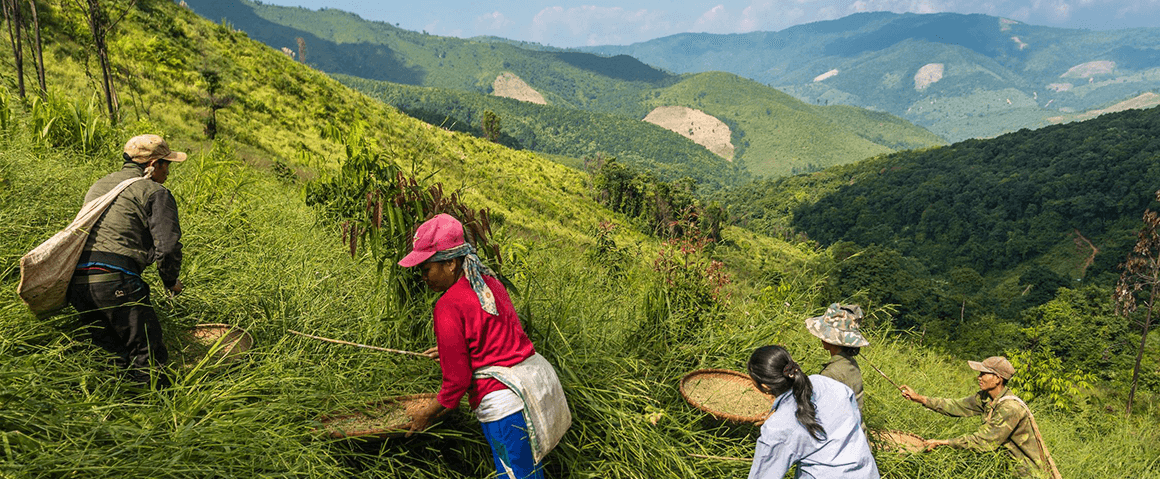- Home
- Worldwide
- CIRAD worldwide
- Projects
- ASSET project
Agroecology and Safer Food System Transitions in Southeast Asia - ASSET

Fodder seed gathering © Gaylord Giordanino, CIRAD
Issues
The agricultural sectors in Southeast Asia lie at the crossroads between models based on the Green Revolution and on innovative agroecological systems. The intensification of conventional agriculture is leading to a simplification of agricultural landscapes, soil degradation and biodiversity depletion, along with increased health risks for farmers and consumers. A major challenge for the research and development community is to support transitions to a mosaic of production models (agroforestry, crop-livestock integration, crop diversity, conservation agriculture, etc.) and diversified marketing, underlying healthier food systems.
Description
The goal of the ASSET project will be achieved by strengthening and synergizing initiatives that contribute to agroecological transitions to safe food systems at local and regional level.
In practice, this will involve:
- Strengthening ALiSEA, the multi-stakeholder network bringing together NGOs, the private sector, research and farmer organizations on the subject of agroecology (https://ali-sea.org/);
- Converting the ALiSEA multimedia tools into a major knowledge hub on agroecology and safe food systems;
- Awareness raising and capacity building on agroecology and transitions to safe food systems;
- Knowledge production and backing for innovations supporting territorial and transdisciplinary approaches;
- Introduction of a methodological framework for assessing the performance and impacts of innovations and transitions;
- Contribution to a policy dialogue and advocacy based on conclusive data.
Expected changes
- ALiSEA becomes a fully autonomous member-managed network and a knowledge hub supporting transitions to agroecology and a safe food system;
- Innovation processes at territorial level are strengthened at flagship sites in the four countries;
- Robust evidence on agroecological system performance, impacts and conditions for development fuels strategies and political processes on a larger scale;
- Policy dialogue on agriculture, food and trade at national and regional level (notably ASEAN) is fostered and strengthened, to better integrate sectoral issues and support the project.
























